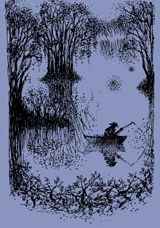Contents
Series Editor’s note by Jean Boase-Beier
Translator’s Preface, by Richard McKane
Larissa Miller: An Introduction, by Sasha Dugdale
Biographical notes: Larissa Miller, Richard McKane and Sasha Dugdale
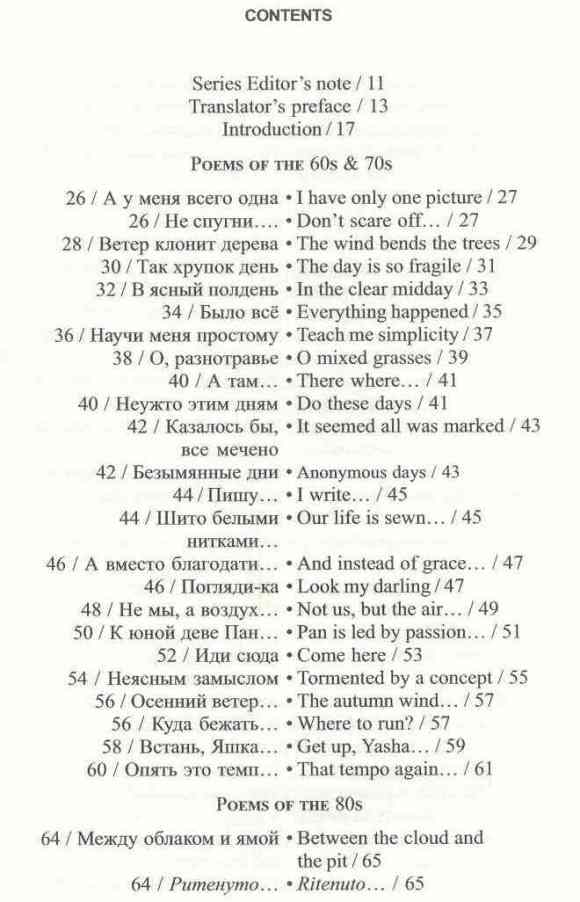
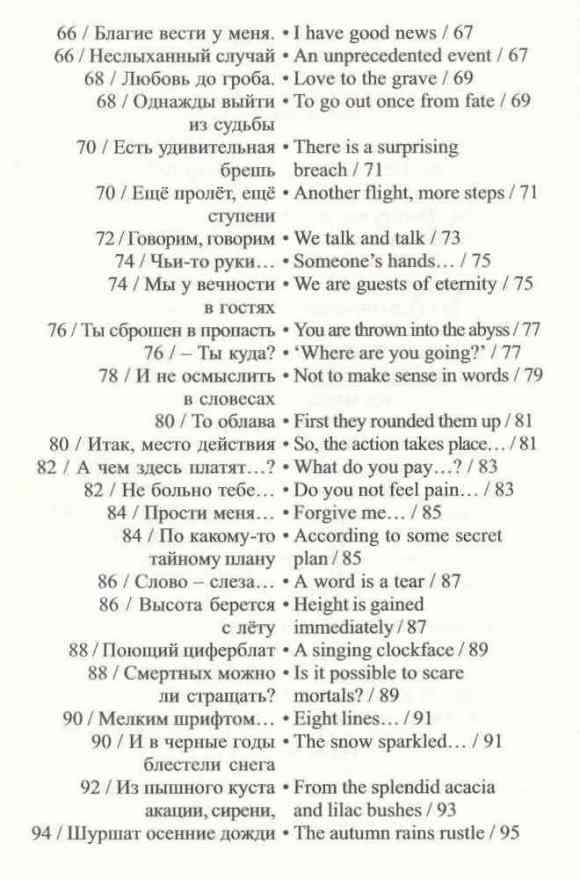
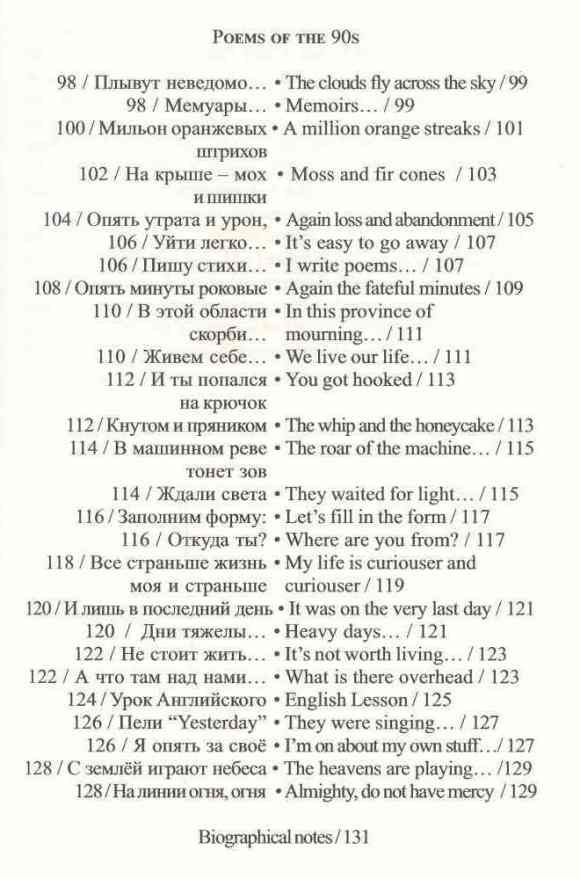
GUESTS OF ETERNITY, Larissa Miller, translated by Richard McKane
Arc Publications 2008 ISBN 978 1904614 06 7/88 3
SERIES EDITOR'S NOTE
There is a prevailing view of translated poetry, especially in England, which maintains that it should read as though it had originally been written in English. The books in the 'Visible Poets' series aim to challenge that view. They assume that the reader of poetry is by definition someone who wants to experience the strange, the unusual, the new, the foreign, someone who delights in the stretching and distortion of language which makes any poetry, translated or not, alive and distinctive. The translators of the poets in this series aim not to hide but to reveal the original, to make it visible and, in so doing, to render visible the translator's task too. The reader is invited not only to experience the unique fusion of the creative talents of poet and translator embodied in the English poems in these collections, but also to speculate on the processes of their creation and so to gain a deeper understanding and enjoyment of both original and translated poems.
Jean Boase-Beier
TRANSLATOR'S PREFACE
I met Larissa Miller and her editor husband Boris Altshuler, who is a physicist and activist for children’s rights, through two Quaker friends in the cafe in North London where I was in the process of writing my book of poetry Coffeehouse Poems. At that stage I didn’t know of Larissa Miller's poetry. She gave me, I remember, some photocopies of magazine publications and, when she returned to Moscow, she sent me several books. As a working poetry translator from Turkish as well as Russian, I am given a lot of poetry in the hope that I might translate it, especially now when travel to and from Russia is more usual.
What, then, made – and makes – Larissa Miller's poetry different? What was it that immediately struck me as a reader and gave me the strong feeling that I could, and should, translate her? It was not just that her writing career started like my own poetry and translating career in the '60s and extended to the present time – there are several living Russian poets for which this is true. It was not a quid pro quo act of 'friendship' translation although we did a reading together at the Pushkin Club when she returned to Britain some years later. There is a sensibility in Larissa Miller's poetry that is arresting and draws the reader into her poetry. She’s a nature poet, a poet for all seasons, not only of the natural world, but of the soul. Her depictions of nature scenes, of snowscapes, are full of vibrant metaphors, often with images of darkness and light, evil and good:
Oh world, your bodies are sinful.
Your deeds are black at times.
Be quiet and white, white and quiet
at least between the lines, between the work.
(p. 49)
And:
When they led away the innocent under guard
the cherry trees were blossoming tenderly,
the waters of the lakes rippled
in those black, black years.
(p. 91)
Her poems are short, often with two fitting onto a single page. Some of her best poems address what it's like to be a poet, a wife and a mother – here she expresses her fears for her young son growing up in the Soviet Union:
Forgive me, forgive
that I brought you into this world.
What strength can
save you in the troubled hour?
These thoughts burn the soul,
my sleep is heavy, as though I’m drugged.
You dream though of daisies blooming.
Let them bloom for an age.
(p. 35)
And:
My child, the justification of my confusion...
I thank you warmly. You allowed me, the rebel,
to be your mother, tiresome and tender.
(p. 41)
Larissa Miller teaches English in Moscow – one of her most moving poems is to Yasha, one of her students who died.
His face will disappear in a moment.
And there are no miracles. But, Lord, until
the damp mound of earth has not yet grown
and snow and ice have not yet gripped it,
come and command: 'Let him rise. Let him walk.'
(p. 59)
Her husband, who edits all her books, also speaks English and they were both able to be of great help in the translation and editing of the poems in this volume, Guests of Eternity, which have been taken from her collection Between the Cloud and the Pit. This, like many of her books, is a selection of poems written over many years and its title, as well having a Dantean quality, suggests the proverbial "between heaven [sky] and earth" that describes the state of suspension that so many millions of Russians found themselves in for so long.
As to life itself,
you have no time to live,
you shouldn't even think of it
because there is a revolt in spring,
reforms in summer and re-elections in winter.
(p. 109)
Indeed, throughout the poems in this volume, we are aware of Miller's poignant, 'hands-on' attitude to suffering:
But whom will I ask? Everyone,
one could say, suffers the same.
What do I ask and about what,
if my neighbour is dying
from thirst by the stream?
(p. 37)
Although Larissa Miller also writes prose – essays and memoirs – it is for her poetry that she is best known; if I were to use one word to describe its quality, it would be integrity.
Guests of Eternity consists of poems written over a period of more than forty years and as such, it is an excellent introduction to the scale of Larissa Miller’s work. For an understanding of the words, 'the Russian Soul', I can think of no better book to open than this.
Richard McKane
LARISSA MILLER: AN INTRODUCTION
- “However hard the world we live in, the hardest by far is to maintain order within that space, which is entrusted to us – our souls, and to see off the constant conflicts which arise on the invisible border between internal and external space.”
Larissa Miller wrote these words in her essay Man at Play in 1996. They embody the spirit of much of Miller’s writing. Whatever the circumstances, whatever the horrors of the external world, the state of one’s own soul is of paramount concern. If one engages in the struggle to keep that in order, then everything else can be overcome.
This sense of uprightness, of pride and personal morality, pervades all her work and is felt particularly clearly in her memoirs Dim and Distant Days (trans. by Kathleen Cook and Natalie Roy, Glas, 2000). The memoirs describe with a lucid and often merciless honesty her childhood and adolescence in post-war Moscow. Post-war Soviet Russia was a tough place to grow up – thousands of Russian men had perished in the war, and Larissa, like many other girls her age, grew up without a father. It was a time of terrible austerity: Larissa, her mother and grandparents, lived in a communal flat with other families, their local store served veterans and invalids and the long queue for food was made up of amputees. As a Jew, Larissa faced both ‘casual’ anti-semitism from school friends and officially sanctioned anti-semitism throughout her education. Her description of these injustices, the child’s own hot feelings of rage and bewilderment, are so precise that the reader quivers with furious indignation on her part.
- “The teacher combed my hair, tied a big bow on my head and seated me in the middle of the veranda for all to see. On a clothes-line behind my back, my wet [bed] sheet was hung out to dry. I sat there with the pretty bow on my head until lunchtime and everybody came to have a sneer.”
But in the memoirs the deprivations and injustices of the external world are contrasted with the love and brightness which Larissa’s Mother, against all odds, manages to bring to their drab life. Miller savours these moments: the little gifts from the market, cinema trips, evenings spent together. Her Mother also creates the world of reassuring everyday routine: visits to shops, furriers, hairdressers, dressmakers and cobblers. Each of these exists in its own intact magic world, a picture of cosy eccentricity. Despite the outwardly monolithic city, Moscow’s ‘village’ community survives. From her Mother and her absent Father Larissa also witnesses that love may remain pure and may submit to no one, and that it is possible to exist within the hideous Soviet social structures and yet preserve one’s spirit unbent.
As Larissa grows older the counterpoint between the outer world and a private spiritual world becomes both more marked and more terrible. Her Mother and her few friends, poetry, dance and languages stand in contrast to a mainly vicious and yet apathetic society, to fear of pain and disgrace. And in the final pages of the memoirs her much-loved dissident husband and their close circle of friends are tested by open persecution and imprisonment, before the final freedom and release of glasnost’.
I have dwelt on the memoirs not only because they offer context and detail to the poems here, but because the memoirs of a poet are always, however unconsciously, the outlining of the ‘myth’ of growing poetic sensibility in the poet. In her prose Miller uses a collage of incident and anecdote to present the various stages of her maturing. Another essay All We Breathed In describes how Miller learnt to ride a bike as a child by cycling up and down outside Pasternak’s dacha. Pasternak was also her absent father’s favourite poet. His was the sole book he had taken with him to the front. The last present he gave to a friend. Pasternak, she writes, is ‘part of her’, her poetic inheritance, which she must grow into, and she expresses this visually: the child wobbling on the bike, gradually becoming more confident; the literary giant in his dacha between the trees.
Miller’s memoirs, if read in the same way, show Miller’s preoccupation with journey and spiritual growth. She is not born a poet or a person of spirit, she has to suffer and work at becoming ‘herself’ and she makes humbling mistakes on the way. In lieu of a conclusion she writes:
- “Each of us, when we are born, falls into the river of time and swims with the stream, rejoicing at everything we find on the way, until one day we suddenly stop and ask ourselves: ‘Who am I? Where am I going? Can I touch the bottom? Once you have asked this, you begin to flounder and sink. You stop swimming like a fish in the river of time and have to learn to swim again, which may take the rest of your life.”
This struggle to grow and mature with one’s soul intact – ‘learning to swim’ – is what being alive is about, it is the only way to be. So, for example, Miller compares her own industrious, if not immediately skilled, efforts to learn to dance with the movement of a beautiful ethereal dancer Ksyusha, who lives nearby. Eventually Larissa becomes ‘a perfect sylph’ and the unhappy Ksyusha is brought to the ground by severe depression.
Many of the poems follow this preoccupation with struggling and suffering. Take ‘In this province of mourning and lamentation...’ (p. 111). The question posed in this poem ‘Is it possible without suffering?’, is answered with a finger at the temples (implying madness). In ‘To rise to the heavens / pace after pace, night and day, / is the same as honestly / milling the wind’ (p. 87) we see that the business of writing poetry is of course part of this suffering, a cross to bear, and one which must be borne with dignity.
This view of poetry is perhaps alien to the British culture of poetry writing. In Russia, poetry has long been viewed as a terrible but distinguished burden, and Miller is no exception here. In ‘It was on the very last day of creation’ (p. 121) she speculates that rhyme was created by the Lord who began to sing upon beholding his handiwork, and his singing animated the soul, and the diverse words prayed for rhyme to unit them. So rhyme and poetry were created at ‘the height of the Divine game.’
Part of the poet’s spiritual burden is the duty not to stand apart from society and prophesy. This collection includes her political poems from the ‘70s and ‘80s which comment openly on the horrors of the Soviet system and the world. Particularly affecting in this respect is ‘Everything happened that could’ (p. 35). Written in 1974, it is a poem of maternal love and fear for the object of that love, ‘My boy, flesh of my flesh, / my graft, having put down roots / alongside the black abyss...’. It ends with the wish that the fragrant flowers of his dreams should bloom for an eternity. Other poems comment directly on purges and tortures – none of them can have been published before glasnost’. When she wrote them, Miller would not have envisaged their open publication anywhere.
Miller’s sense of moral purpose and her spirituality are religious in the widest sense. She believes in a God and another and better existence. Sometimes she addresses God in the poems, reproaching him, as Job did, for her difficulties. Sometimes this is an unorthodox vision, such as the little white-winged angel in the poem ‘Don’t scare off...’ (p. 27), who inspires her to think that nothing that has happened is important, when there exists another realm of unlimited tenderness and all that is needed is to take a ‘distinct and conscious step’. Sometimes the religious apparition is an unspecified and mysterious other, akin to a shiver down the spine, or a moment when one leaves the heated hut (see ‘To go out once from fate’, p. 69) for the ‘black abyss of night, / and the secret reason of life’.
In such poems, poems of revelation, single moments when a transcendent world opens itself to the beleaguered speaker, Miller follows the tradition of nineteenth century Russian writers such as Tiutchev, Fet and the later Symbolists – Bely and Blok. As with Tiutchev most of her revelations occur in the natural world – ‘There is a surprising breach’ (p. 71) describes a ‘hole’ between two nights which a stork flew through, carrying us ‘bewitched’. In another poem (‘The autumn wind chases’, p. 57), ‘A prophetic voice will be heard in the crunch of wood / and in the rustle of trees.’ Yet, like the Symbolists, she is not a poet of nature in the way we would understand this term. Her almost biblical landscapes are composed of trees, skies, wind and stars, rather than any particular observations of the natural world. Nor is she interested in local or rural dialect or phrasing. She uses consciously archaic and high-register words to stress the solemn and celebratory nature of the vision and in this, too, the effect of writers such as Blok can be felt.
In a revealing essay ‘If only there were no words...’ (a line from a poem by Fet, which ends ‘One could speak with the soul’) she begins by quoting Blok’s poetry as an example of poetry which exists without words. By this she means that there is a poetry which is ruled by sound alone. The words themselves are simple, even banal, but it is the way in which these poems are linked with ‘the flow of breath, with which they mix and to which they give voice’ that makes them poetry. Miller’s own poetry might well be described as ‘poetry without words’. She uses, on the whole, basic words, unembellished simple concepts and objects – an analysis of her use of words would reveal the high frequency of words such as ‘flight’, ‘tears’, ‘dreams’, ‘water’, ‘fire’. But her poems have an exceptionally strong lyrical and sonorous quality and a musicality which is hard to reproduce in English. She is an extraordinary technician. Her often complicated and dense rhymes and rhythms have an effortless quality to them, the ‘unbroken movement’ she observes in Blok’s poems. All this creates the effect of a poetry which stands outside school and fashion and which appears to appeal to infinite worlds and gods. It strives to recreate in words the ‘flight’ and ‘movement’ of the soul which is so important to her. A few of the poems employ to great effect the traditional rhetorical paradox – calling into question the poet’s ability to create flight, or to catch in poetry’s net the essence of life, and yet doing so with such consummate skill that the poem appears weightless. It is hard to describe this to a non-Russian speaker. Russian is an inflected language, it has many rhyming possibilities and rhyme can be incorporated into a contemporary poem with an exquisite naturalness.
In Miller and in Blok, too, the sonorous qualities of the poem, the songlike nature of the poetry is linked with the expressed religiosity. The intention of the poet is to create poems which enable the human speaker to lose herself in something far greater, the natural force of sound. In Miller’s essay she compares this wordless poetry with the no less spiritual poetic world of Pasternak. Pasternak is a poet of words, she writes. In his poetry the words have a particular strength and energy. They lie ‘across and not along the flow of breath’, creating a new reality ‘denser and more concentrated and expressive than life itself.’ Pasternak’s famous poem ‘Vo vsem mne khochetsya doiti’ (literally ‘In everything I want to reach / the real essence.’) is a good example of this – a poem in which the poet’s longing to get to the heart of things, write exactly how life is, is expressed by a relentless attempt to make this longing precise, a repeated ‘coming at life’ with ever finer and more eloquent statements of poetic desire and frustration.
Miller ends her essay by stating that the poet ‘has a complicated relationship with the word.’ ‘Sometimes’, she continues, ‘the poet stops believing in the word’. She writes that she herself loved Pasternak’s poetry in her youth, but without ceasing to love his poetry, she moved away from him. Clearly her own preference is now for ‘wordless’ poetry, poetry which barely breaks the silence, barely emerges from it ‘as the face of Christ barely emerged from Veronica’s veil’. In some senses we can read this too as a journey – a religious journey through the poetry of words, through Pasternak and her younger self, to a poetry which, like a religious vision, barely surfaces from the veil of language. These new translations by Richard McKane more than amply demonstrate the linguistic and spiritual passion and commitment of this important Russian poet.
Sasha Dugdale
BIOGRAPHICAL NOTES:
Larissa Miller, Richard McKane and Sasha Dugdale
* * *
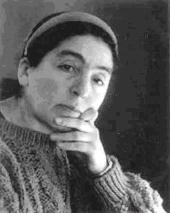
Larissa Miller is a major Russian lyrical poet and author of many short stories, essays and articles in periodicals, and of fourteen books, one in English translation (Dim and Distant Days, Glas, 2000). A member of the Union of Russian Writers since 1979, and of the Russian Pen-Centre since 1992, she was shortlisted in 1999 for the State Prize of the Russian Federation, having been nominated for the prize by the famous literary almanac Novyi Mir. Many poems by Larissa Miller have been set to music, in Russia by Michael Prikhod'ko (who has released three discs of songs to Miller's words), and in the UK by Helen Chadwick. In 2003, 49 of Larissa Miller's poems were put together as a theatrical 'Poetical Performance' which played at various Moscow theatres.
Born in 1940 Larissa Miller graduated from the Foreign Languages Institute in Moscow and for many years worked as a teacher of English, but since 1980 she has been teaching a women’s musical gymnastics system named after its creator, the renowned Russian dancer Lyudmila Alexeeva.
* * *
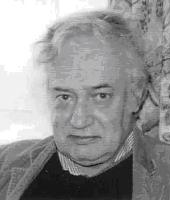
Richard McKane was born in 1947 and read Russian at Oxford, his Selected Poems of Anna Akhmatova (Penguin / OUP) appearing in 1969. He lived in Turkey for six years in the 1970s, working on an archaeological dig in Kandahar, Afghanistan for some of this time. In 1978 he was awarded the Hodder Fellowship at Princeton University where he met his former wife Elizabeth, with whom he later brought out Mandelstam's Moscow and Voronezh Notebooks.
For over eighteen years, he worked as an interpreter from, and into, Turkish and Russian at the Medical Foundation for the Care of Victims of Torture.
As a translator, Richard McKane, working with Ruth Christie, has brought out two selections of Oktay Rifat's work, Voices of Memory and Poems and, with Talat Halman, Beyond the Walls: Poems of Nazym Hikmet; he has also translated the work of Nikolai Gumilyov, Olga Sedakova and Aronzon. As a poet, he has had two bilingual books published in Turkey, Turkey Poems, and Coffee House Poems, and a selection, Amphora for Metaphors, in New York.
Richard McKane has retired from interpreting, and now lives in the provinces, concentrating on his translation and poetry.
* * *
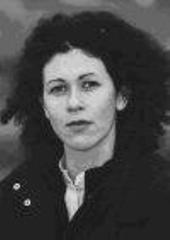
Sasha Dugdale has published two poetry collections, Notebook (Carcanet / Oxford Poets, 2003) and The Estate (Carcanet / Oxford Poets, 2007). She translates Russian plays for several theatres in the UK and the USA, her translations including Plasticine by Vassilii Sigarev (winner of the Evening Standard New Play of the Year Award), Terrorism and Playing the Victim by the Presnyakov Brothers and Chekhov's Cherry Orchard (produced by BBC Radio in Autumn 2008).
Her translations of Russian poetry are published by Bloodaxe. The most recent, a collection of poetry by Elena Shvarts entitled Birdsong on the Seabed (2008), was a PBS Recommended Translation.
